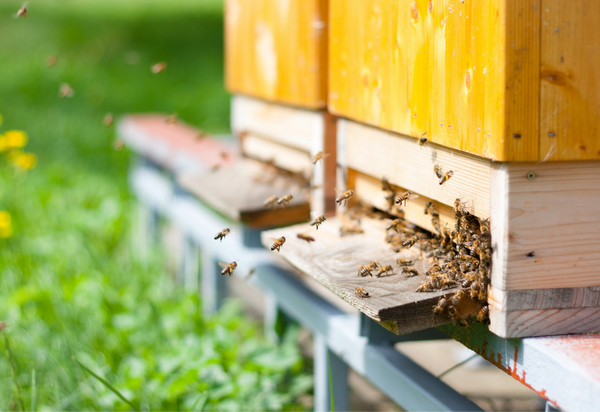Few of us are feeling at our best after the festive season. You may be looking at the scales, wishing you hadn’t tucked into quite so many mince pies – and so much Prosecco – and that you’d had a few more early nights and managed to fit in a bit more exercise, instead of sinking into the sofa for endless box-set binges. This is also the time of year colds, flu and winter vomiting bugs tend to do the rounds. No wonder so many of us emerge, blinking, into January, feeling tired and sluggish.
No surprise, then, that we throw ourselves into making New Year’s resolutions. Whether it’s joining a gym, ditching alcohol for green juices or signing up for a slimming programme, this is the time of year lots of us decide to transform our wellbeing. But statistics suggest more than half of resolutions fail. According to health psychologists, that’s often because they’re unrealistic. Instead, experts suggest it’s better to make small, sustainable changes – over time, these can transform your health because you’re able to stick with them and build on them. With that in mind, here are some super-simple but uber-effective tweaks you can make to your lifestyle now. They’re easy, achievable – and really work.
1. SWAP the biscuit tin for the fruit bowl
Keeping healthy food visible means we’re much more likely to reach for it, according to research from Cornell University, US. So fill up that fruit bowl and keep it easily accessible in your living room. Conversely, keeping fatty or sugary treats out of sight – for example, at the back of a cupboard rather – means we’re less tempted to nibble those.1
2. SWAP four wheels for two wheels – or two feet
A study from the University of East Anglia found cycling or walking – rather than driving - improves mental health, blitzing stress and clearing your mind, as well as boosting physical fitness.2 Try switching part of a regular journey for a walk or cycle, even if you need to drive or use public transport some of the way. You can build up to being more active.
3. SWAP a cup of coffee for a mug of hot water
We should all be drinking at least eight glasses of fluid daily. And staying hydrated may have benefits beyond basic good health - plenty of water helps you feel more alert, research has shown,3 while a 2015 study found drinking 500ml half an hour before eating may help you lose weight.4 At this time of year, cold water straight from the tap may not seem too appealing, so why not try a mug of warm water instead? Add a slice of lemon or a twist of ginger for a bit of flavour.
4. SWAP sugar for Manuka Honey
Government guidelines state free sugars – those added to food either by you or by a manufacturer - should only make up 5 per cent of our calorie intake, equivalent to around 30g, or seven teaspoons. But most of us are eating far more, with men and women aged 19 to 64 respectively consuming 64g and 50g of sugar daily, according to the most recent National Diet and Nutrition Survey. There’s no doubt the majority of us need to cut down and the best way to do that is by avoiding sugary snacks and drinks. But sometimes you need to sweeten healthy foods to make them more palatable - think bland foods like porridge or sour fruits such as apricots. Next time you need a natural sweetener, reach for a jar of UMF Manuka Honey. A recent review of studies described honey as a medicine because of its healing properties, and Manuka Honey has extra benefits because of its ability to fight bacteria and, potentially, viruses too.5 Plus it’s delicious! A little goes a long way – try stirring a teaspoon of Manuka Honey into your porridge, or add it to taste when you stew fruit.
5. SWAP your tablet for a podcast
The blue light emitted by tablets and smartphones suppresses sleepy hormone melatonin, which your brain releases when it’s dark. Although the general advice is to avoid looking at smartphones and tablets in the hour before bed, research from Harvard University suggests you should turn off your tech as much as two to three hours before you hit the hay.6 Instead of looking at social media, do something that’s engaging without being over-stimulating – such as listening to a podcast, reading a book, or having a soak in the bath.
Sources
1. http://foodpsychology.cornell.edu/discoveries/three-secrets-healthier-eating
2. Martin A et al. Does active commuting improve psychological wellbeing? Longitudinal evidence from eighteen waves of the British Household Panel Survey. Preventative Medicine, Volume 69
3. Edmonds CJ et al. Subjective thirst moderates changes in speed of responding associated with water consumption. Front. Hum. Neurosci., 16 July 2013
4. Parretti HM et al. Efficacy of water preloading before main meals as a strategy for weight loss in primary care patients with obesity: RCT. Obesity. Vol 23, issue 9
5. Khan SU, Anjum SI, Rahman K et al. Honey: Single food stuff comprises many drugs. Saudi J Biol Sci 2018 Feb; 25(2): 320–325
6. https://www.health.harvard.edu/healthbeat/using-these-lights-at-night-may-harm-your-health







